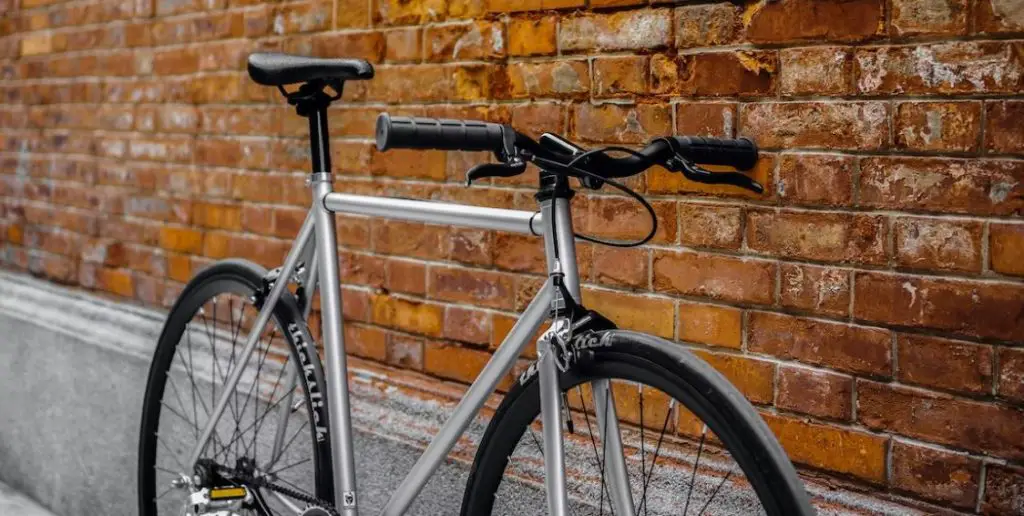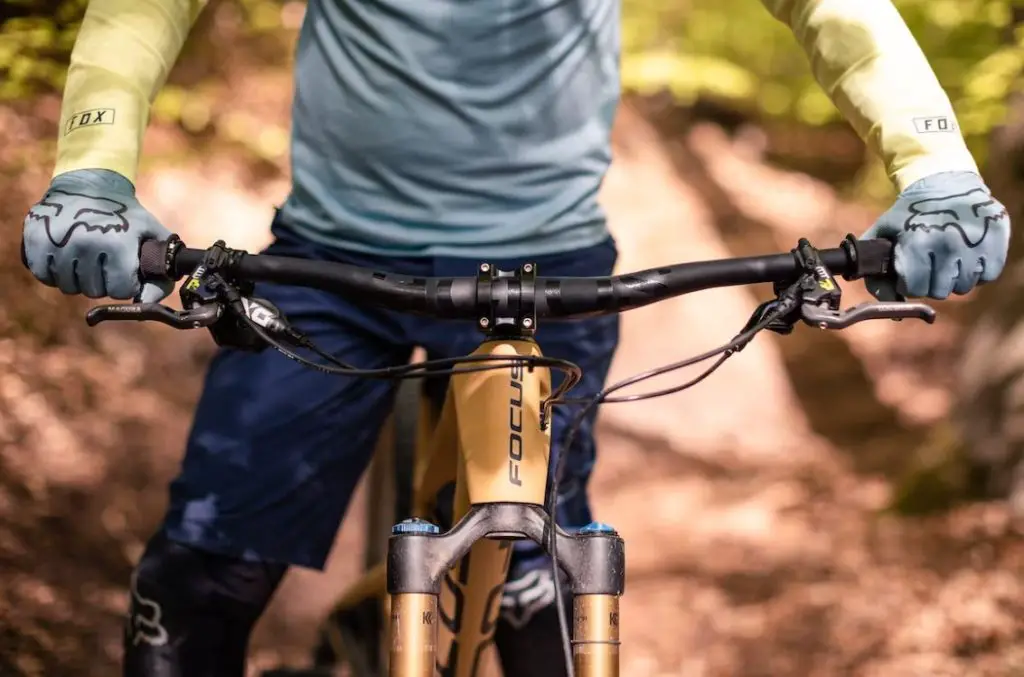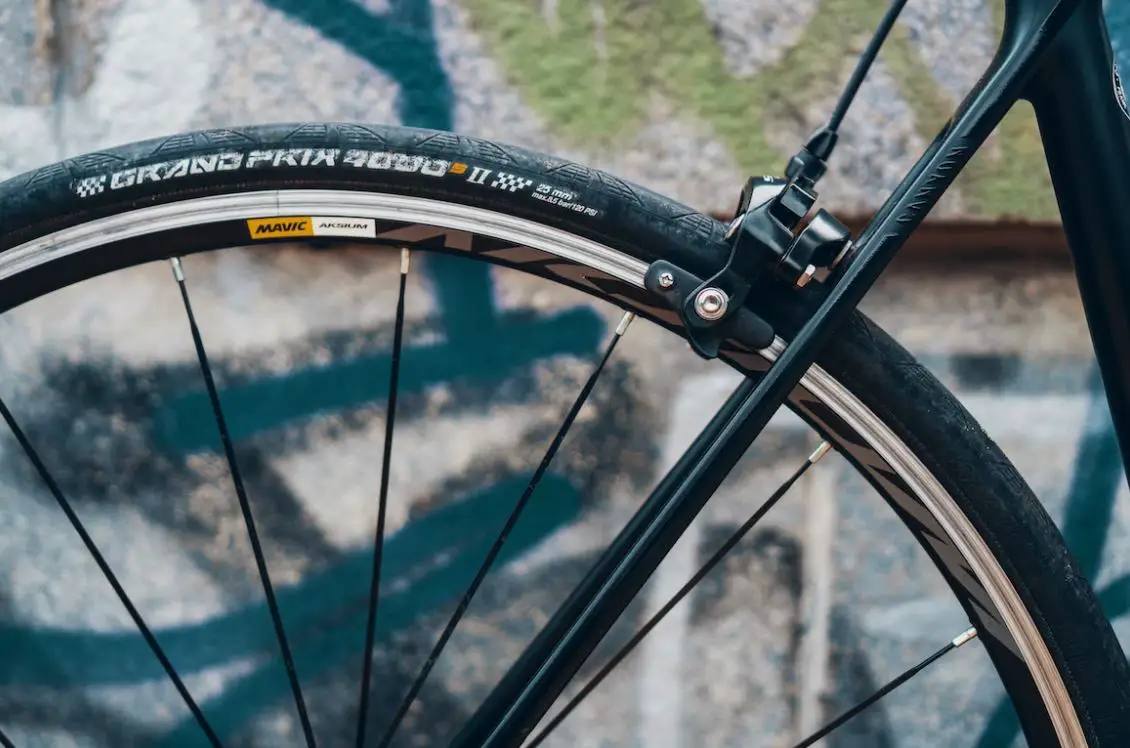You’re all geared up for a thrilling bike ride, ready to conquer the roads, but as you squeeze the brakes, you realize they’re not releasing.
You’re not alone! Countless cyclists have faced this nerve-wracking issue, and it’s time to put an end to it once and for all.
In this post, I’ll go over why your bike brakes not releasing and answer a couple of FAQs.
But I won’t stop there! I’ll give you expert tips and tricks to fix the problem and restore your brakes to their smooth and reliable state.
Why Are Bike Brakes Not Releasing?
There are several possible reasons why your bike brakes aren’t releasing. It is worth noting that these issues can often occur in combination or be interconnected.

Let me go over the most common reasons:
Bent Rim Or Brake Rotor
A bent rim or brake rotor can cause the brake pads to remain in contact with the rim or rotor even when the brake lever is released.
Also Read: BMX bikes no brakes
This happens because the bent section of the rim or rotor prevents the brake pads from fully retracting.
As a result, the friction between the brake pads and the bent section creates a constant braking force, preventing the brakes from releasing properly.
Too Much Cable Tension
If there is excessive tension in the brake cable, the brake pads may not fully retract from the rim or rotor when the brake lever is released.
This is caused by factors such as improper adjustment or stretching of the cable over time.
When the cable tension is too high, the brake pads remain in contact with the braking surface, causing the brakes to drag and not release effectively.
Broken Return Springs
Return springs are responsible for pulling the brake arms or caliper back to their original position when the brake lever is released.
If one or both of the return springs are broken or damaged, they may not provide sufficient force to retract the brake pads fully.
As a result, the brakes may remain partially engaged, causing them to drag and not release properly.
Brake Caliper Not Aligned Properly
Improper alignment of the brake caliper can lead to the brake pads rubbing against the rim or rotor, even when the brake lever is released.
This misalignment can occur due to factors such as improper installation, loose mounting bolts, or accidental knocks or impacts.
Malfunctioning Pivot Points
Brake systems often rely on pivot points to allow the brake arms or caliper to move smoothly when the brake lever is activated or released.
Also Read: Cantilever brakes vs v brakes
If these pivot points become worn, dirty, or corroded, they can restrict the movement of the brake components, causing the brake pads to remain in contact with the rim or rotor.

The limited movement prevents the brakes from fully releasing, leading to decreased braking performance and increased wear on the brake pads.
Seized Brake Levers
Brake levers that have seized or become sticky can prevent the brake system from releasing properly. This can occur due to factors such as dirt, corrosion, or lack of lubrication within the brake lever mechanism.
When the brake lever fails to return to its neutral position after being released, the brake pads continue to exert pressure on the rim or rotor, resulting in the brakes not releasing effectively.
You can try lubricating the lever pivots and checking for any damage or rust.
Bike Brake Not Releasing On One Side
The most common reason why bike brakes won’t release is because of issues with the cable or the housing.
Begin by disconnecting the cable from either the lever or the brake. Then, manually close the caliper using your hands.
If the caliper returns to its original position, it indicates a potential issue with the housing and the cable. However, if the caliper remains closed even after manual closure, the problem likely originates from the brake itself.
After that, just like how we did before, you need to check if the brake caliper is aligned properly and the brake tension is correct.
Also check if the return spring has popped off or is not in the correct position.
Also Read: Chain rubs on front derailleur
Dirt or grit buildup on one side can cause the brake to stick, so clean the brake components and apply a suitable lubricant for smooth operation.
How Do I Fix My Bike Brakes Not Releasing?
Here’s what you should do if your bike brakes not releasing:
- Check the brake cable: Inspect the brake cable for any signs of damage, rust, or dirt. You may need to replace the cable or clean and lubricate it.
- Align the brake caliper: loosen the bolt that holds it in place, adjust its position, and then tighten the bolt again.
- Adjust the brake cable tension: Check if the brake cable tension is too high. To adjust the tension, you can use the barrel adjuster located near the brake lever or on the brake caliper.
Turning the adjuster counterclockwise should loosen the tension and help the brakes release.
- Inspect the brake springs: The brake springs are responsible for pulling the brake pads away from the rim when the lever is released.
You may need to replace the springs or adjust the tension using the adjustment screw on the brake caliper
- Check the brake pads: Inspect the brake pads for wear, glazing, or embedded grit. You can try cleaning the pads with rubbing alcohol and sanding them with sandpaper to roughen the surface
If none of these solutions work, it may be best to take your bike to a professional mechanic for further diagnosis and repair.
Bike Disc Brakes Won’t Release
Apart from the reasons we already talked about earlier (which are all possible causes) it could also be caused by a stuck brake piston.
The brake piston may be stuck, causing the brake pad to remain in contact with the rotor. To fix this, you can try pushing the stuck piston back into its housing using a tire lever or a clean screwdriver.
FAQs
Bike Brakes Not Gripping?
If your bike brakes are not gripping, it could be caused by worn down bike parts, misaligned caliper or cable, slack in cable, or misplaced brake pads. Try adjusting these and apply some oil to the brake system.
Brake Pedal Not Fully Releasing?
If your bike brake pedal is not fully releasing, it could be caused by seized caliper or brake pads, pedal pivot rusting/seizing, or stuck caliper.
It could also be a brake booster issue or a pedal assembly issue.

